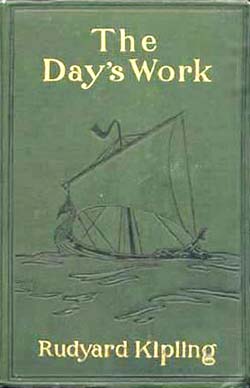This article needs additional citations for verification .(November 2015) |
 | |
| Author | Rudyard Kipling |
|---|---|
| Language | English |
| Genre | Short Story anthology |
| Publisher | Macmillan Publishers |
Publication date | 1898 |
| Publication place | United Kingdom |
| Media type | |
The Day's Work is a collection of short stories by Rudyard Kipling. It was first published in 1898. There are no poems included between the different stories in The Day's Work, as there are in many other of Kipling's collections.